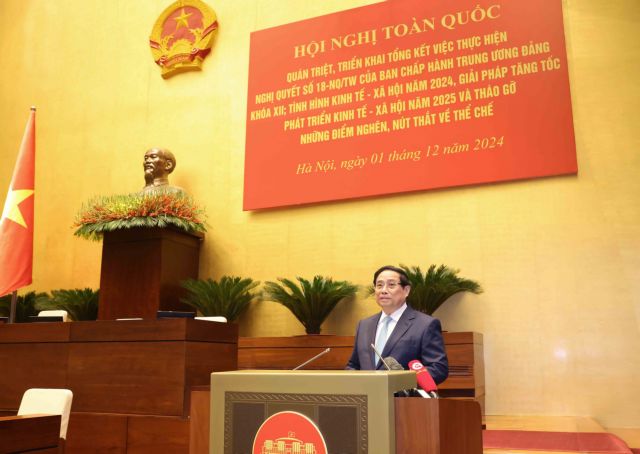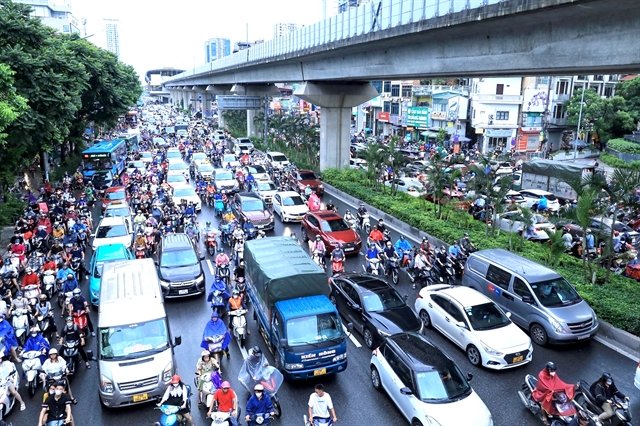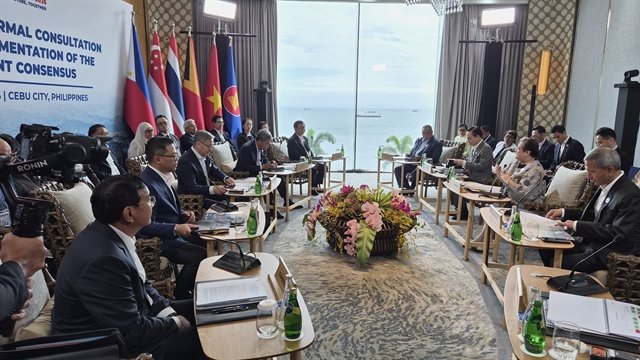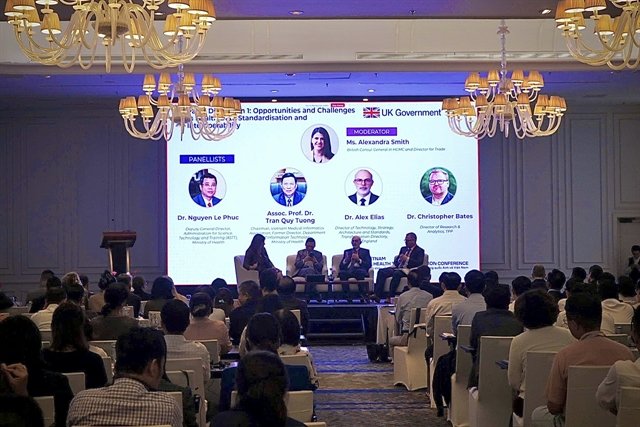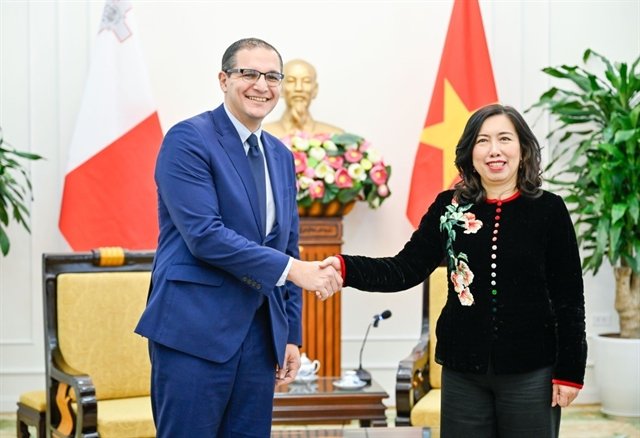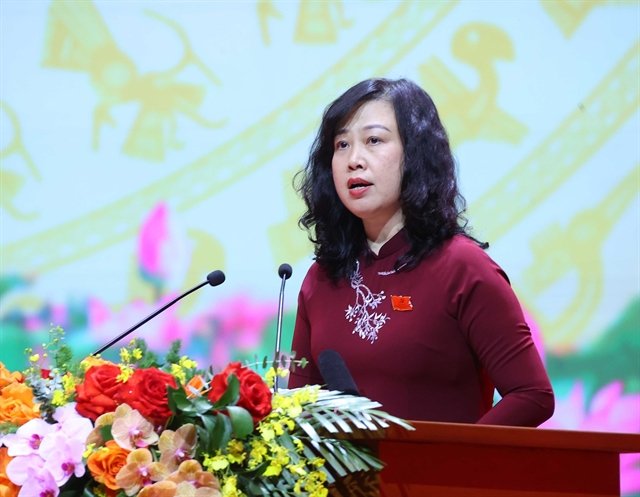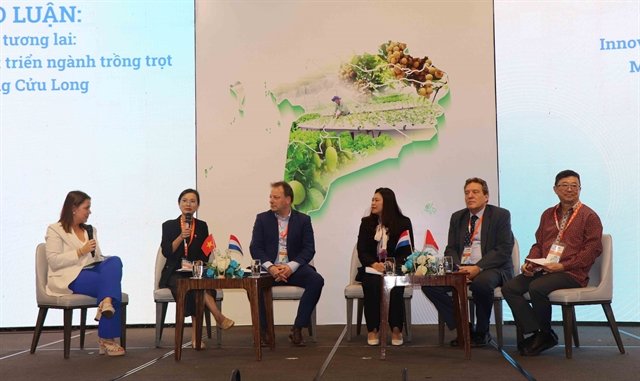Hanoi, December 01, 2024 – The Europe Today: On Sunday, Prime Minister Phạm Minh Chính delivered a comprehensive report on Vietnam’s socio-economic development for 2024 and outlined strategic solutions for 2025 during a national conference. The event was convened to review the implementation of Resolution No. 18-NQ/TW, issued by the 12th Party Central Committee, and discuss measures to accelerate progress in the coming year.
Prime Minister Chính highlighted the government’s decisive, flexible, and effective approach to tackling challenges across various sectors. Key efforts have focused on boosting economic growth while ensuring macroeconomic stability, controlling inflation, and maintaining the balance of major economic factors. In particular, he emphasized the importance of institutional reform, decentralization of power, and streamlining administrative procedures to ease burdens on citizens and businesses.
Furthermore, the government has made strides in fostering technological development, innovation, and digital transformation, while also ensuring robust cultural and social development, securing social welfare, and enhancing national security. Measures to address the aftermath of natural disasters, such as Typhoon Yagi, and combat corruption and wastefulness were also outlined as part of the government’s broad-ranging initiatives.
PM Chính reported significant socio-economic achievements in the first 11 months of 2024, with nearly all areas surpassing last year’s performance. The country’s growth target is set to exceed expectations, with annual growth projected at over 7 percent, positioning Vietnam as one of the few countries in the region and globally to achieve such high growth. The nation also maintained macroeconomic stability, with inflation kept below 4 percent.
Vietnam’s foreign trade reached approximately $715 billion by the end of November, marking a 15.3 percent increase, and a trade surplus of over $23 billion. Foreign direct investment (FDI) remained strong, positioning Vietnam among the top 15 developing countries attracting the most FDI globally.
However, PM Chính acknowledged ongoing challenges, particularly institutional bottlenecks and the need for greater investment in financial and human resources for law-making. He stressed that all authorities must adopt a reform-minded approach to overcome these issues and implement solutions with determination and flexibility.
Looking ahead to 2025, the Prime Minister set ambitious targets, including a GDP growth rate of 6.5-7 percent, per capita GDP of approximately $4,900, and a reduction in the poverty rate by 0.8-1 percent. The government is also focused on ensuring a GDP growth of approximately 8 percent to provide momentum for the country’s long-term development plan for 2021-2030.
In terms of infrastructure, Vietnam aims to complete at least 3,000 km of expressways, finalize the Long Thành International Airport project, and eliminate temporary and dilapidated housing nationwide by the end of 2025.
The Prime Minister outlined several key areas for action, including perfecting the institutional framework, mobilizing social resources, prioritizing infrastructure development, and ensuring reliable electricity supply. Other solutions focus on combating corruption, promoting cultural development, addressing climate change, and safeguarding national security and sovereignty.
PM Chính’s address underscored the government’s commitment to building a prosperous and sustainable future for Vietnam, with a focus on accelerating reforms and tackling challenges to achieve the nation’s long-term socio-economic goals.
